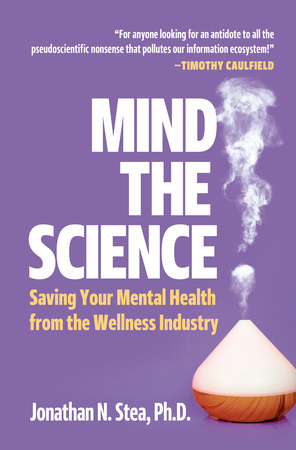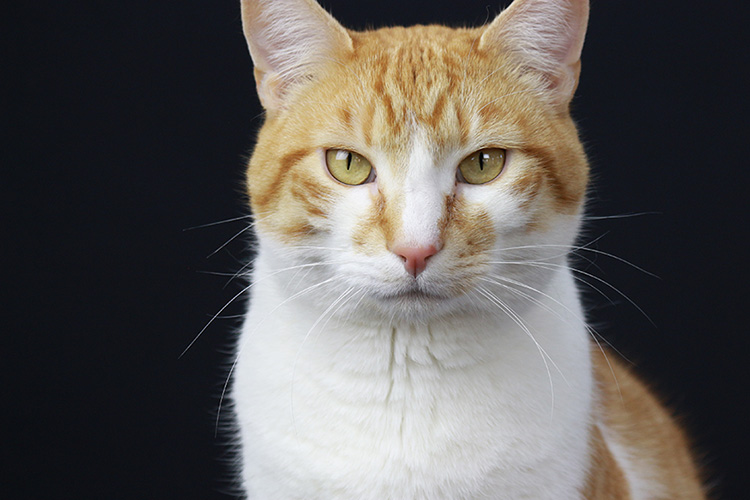Book Club – Mind the Science

Subscribe to Catalyst
Subscribe to get our magazine delivered right to your inbox
Related Articles
Related Articles
The Book Club series profiles good reads that challenge stereotypes and stigmas.
I imagine Jonathan Stea has an “I Heart the Scientific Method” fridge magnet because his book, at times, has the ring of your high school science teacher trying to drum up enthusiasm for the concept to a tough crowd. Eventually it may land.

Mind The Science
Stea comes by it honestly. He is an adjunct assistant professor in the department of psychology at the University of Calgary and a full-time practicing clinical psychologist. He frequently takes to social media to debunk myths and correct facts. (Sometimes his mom even hops online to take on the trolls).
He writes for a lay audience with nuance, avoiding finger-wagging or dumbing-down tones. Stea offers compelling stories along with an overview of how to evaluate research and explains the importance of assessment, testing, peer-review, and various research methods. It’s solid information.
Except that he is battling a tide of speedy hot takes in our online world – a vast hyper-verse of snake oil-type claims from innumerable self-appointed “experts” in physical and mental health, celebrity endorsers, and others that cluster under the all-encompassing nebulous term “wellness.” It’s a vast and largely unregulated domain where many an influencer can hang up their shingle and freely offer tips that can range from cutesy to deadly.
Is it all bad? No. For example, you can shell over good money for a menu plan that aligns with the season and sounds vaguely spiritual. It likely tastes great and offers a cozy kind of comfort, but then there are more grim cases like that of Kirby Brown who attended a “Spiritual Warrior” retreat in Arizona. In 2009, Brown and two other participants died in the final activity of the retreat, a poor imitation of a Native American “sweat lodge.” Twenty other participants were taken to local hospitals.
Consumer safety
The Brown family focused their grief into an organization called SEEK Safely, designed to educate the public about the potential harms of the wellness industry, provide consumer information, and promote safety and accountability. Stea details their story in the book subtitled, “Saving Your Mental Health from the Wellness Industry.”
What might we need saving from? Well, it depends. Stea writes with humility about humanity – recognizing our contradictions, flaws, and changing circumstances. He shares his personal experience of caring for a loved one, grappling with the frustration of ineffective treatments. As a young person, he felt bewildered by science’s limitations. How is it that something capable of sending a man to the moon could also leave those closest to you in “a fog of health uncertainty”? he asks.
As a fellow mere mortal who will eventually fall sick, Stea wonders what he might do in the future. “Will I reach for the healing crystals? Maybe. Desperation is intoxicating.”
That vulnerability in moments of crisis can leave people open to being exploited at a time when they may be seeking growth, deeper meaning, connection, and a soft place to land in a world that is chaotic and confusing. Moreover, ineffective treatments can produce harm, drain your pocket, and erode trust in scientific foundations. At the same time, Stea notes, some wellness treatments may provide coziness and a sense of warmth in a fragmented healthcare system that may not have time for comfort or calm bedside manners. It’s a matter of knowing the difference.

More than just fluff: Is your therapist real or a feline? The case of George the Cat illustrates the importance of understanding how wellness practitioners are regulated in your jurisdiction.
Stea seems hopeful and offers faith in people’s capacity to sort through piles of information. I try to share that view, but more often I wonder about our ability to constantly evaluate the material coming at us in order to make informed decisions.
Do most people, moving through life at breakneck speed, pause to reflect on their “favourite” thinking errors and logical fallacies? I am fond of self-awareness, but not everyone may have it at all times, or in moments of heated exchange, the kinds that are perpetuated by online interactions and algorithms.
The key is to develop it. “This awareness is our friend when trying to figure out the legitimacy of particular mental health-related assessments, diagnoses, and treatments,” Stea writes. In addition to quantitative and qualitative scientific methods, Stea talks about Indigenous ways of knowing as something not to be co-opted as well as the value of lived experiences, where people share subjective takes on their lives, events, and ideas.
Things to watch for
Stea offers helpful tips for developing science literacy, and includes a lay overview of randomized control trials, and other evidence-based processes. He warns of pseudo-clinical jargon that masquerades as science but does not adhere to research methods. A key flag – the evasion of peer-reviewed studies.
“Science is a self-criticizing machine,” he says. “Peer review essentially involves having experts in a scientific field grade each other’s work and decide if it passes or fails,” he explains. “People who promote pseudoscience are experts at dodging the peer review process. They will either avoid it entirely or self-publish on blogs, websites, newsletters, or social media. They will claim that their pet theories cannot adequately be tested with current scientific methods, or they will claim that the ‘scientific establishment’ is biased against them,” he writes.
Stea demystifies the concept of science overall, noting that it’s something to regard as a tool or process and not something to believe in, he says. “Science isn’t a God. Or a unicorn.”
Healthy skepticism
To stem the tide, Stea offers an easy-to-implement practice – tame your search bar. Essentially, he explains, it is like going to the grocery store and avoiding impulse buys. The key: Go with a list. “Why are you looking online? Knowing what you need – such as ways to improve your health or a therapist – can keep you out of rabbit holes,” he says.
Thinking critically about information is a helpful skill when navigating an overwhelming online landscape and if you need a reminder, you can make George the Cat your screensaver. The domestic orange-and-white housecat was registered as a hypnotherapist with three UK industry bodies by a BBC journalist, exposing the flaws of certification and credentials. This example, while amusing, can serve as shorthand. “We all fall for fake science news at times to varying degrees, and it’s easier in hindsight to see what went wrong,” Stea writes.
Learning from those errors and developing media and scientific literacy can offer a sense of structure and control, as fake science news continues to perpetuate.
Further reading: Book Club – All in Her Head: How Gender Bias Harms Women’s Mental Health.
Resource: Online Disinformation: If it raises your eyebrows, it should raise questions.
Author: Fateema Sayani feels like “regression analysis” can be used ironically, these days. She frequently writes The Book Club section for The Catalyst.